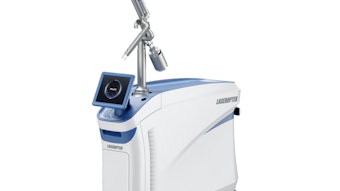
We’ve all experienced the disappointment of planning a big night out at the new restaurant known for its amazing food, only to have the evening fizzle due to poor service. While a restaurant may have award-winning cuisine, if the wait staff provides poor service, the establishment will be a short-lived venture. The lesson in this is that a business is only as good as its employees.
Maintaining an exceptional staff involves setting expectations, tracking performance, rewarding excellent performance and addressing problem areas before they become major issues.
Setting Expectations
Most employees want to do a great job. But in order to achieve their best, staff members must understand what is expected of them. Common expectations for employees of a medical aesthetic practice may include the ability to communicate effectively, engage in teamwork, and possess and maintain the skills needed to perform their jobs effectively. Other important qualities are the ability to make decisions and problem solve. Finally, attentiveness to patients is critical. As discussed in our restaurant example, poor customer service can sink a business.
You can communicate staff expectations by creating accurate job descriptions that clearly outline responsibilities for each position within the facility. Your employee manual should also cover job requirements common to all workers, such as attendance, dress code, professional conduct and social media policies. Be sure to explain these policies during the onboarding process and have new employees sign off, indicating they understand the policies and have received a copy of the manual.
Tracking and Reviewing Performance
One of your key responsibilities as a manager is to track employee performance. Most businesses do annual reviews—and these are important. But you should be gathering data on employee performance throughout the year. Don’t wait until the week before an appraisal to begin tracking performance. It is important to document both the good and bad along the way, rewarding excellence and addressing problems as they arise.
In addition to collecting hard, quantitative data (e.g. sales numbers or attendance), seek feedback from co-workers on things like teamwork, attitude and skill level. Consider having employees complete a self-assessment of their own performance prior to the annual review. This can help you spot disconnects between how the employee thinks they are doing versus how you think they are performing. Identify examples of good performance as well as areas for improvement, and be as specific as possible.
Think of your employee performance reviews as self-improvement tools. A good assessment is factual and specific. It helps the employee understand what they do well, and where they can improve. If there are areas in which the employee is not meeting expectations, a performance improvement plan should be implemented.
Rewarding Excellence and Addressing Concerns
To recognize excellent performance, pay increases or cash bonuses are always welcome and effective, but you can also offer free services, time off or a gift card to a favorite shop or restaurant.
There will, of course, be times when an employee isn’t delivering the results you need. These situations are difficult, but they must be addressed in a timely manner. The coaching you provide is the most important factor in improving employee performance. Here are some suggestions on how to make this a positive and productive undertaking.
First, meet with the employee in private. Review the areas of underperformance, and be specific about what needs improvement. Work with the employee to develop a plan to reach the expected outcome—and let them know that you believe in their ability to successfully reach the goal. Identify short-term goals or milestones along the path to the final objective. The greater the improvement needed, the more milestones there should be.
If additional training or resources are required for the employee to perform the tasks, provide them. (It is important to consistently offer ongoing training and opportunities for growth and development. A professional staff with up-to-date skills is a great asset.)
Set a timeline for achievement of the individual milestones and the overall goal. Then, set up future meetings to assess progress. These may be weekly, monthly or quarterly, depending on the situation. Put all of this in writing and give the employee a copy. Track their performance and document it. If a milestone is missed, find out what happened and develop a plan to get the employee’s performance back on track.
There are various performance management templates available online to help you track performance and guide your staff assessment. Regardless of the resources used, the accuracy of data you collect and the coaching you provide are the most important factors in improving employee performance.
Taking the time to accurately assess performance and work with staff to improve is key to patient safety and satisfaction. A great team complements your clinical skills and can keep your practice on track for continued growth and success.
Staff Assessment Checklist
The following questions can help guide your performance evaluations and identify areas for improvement among both staff and management:
- What accomplishments this (quarter/year) are you most proud of?
- Where do you think your performance has improved the most? Why? What has contributed to the improvement?
- What is the most challenging aspect of your work?
- What can we do to help make that less challenging for you?
- What motivates you to excel in your job?
- What skills do you have that you believe we could use more effectively?
- What two things would you like to focus on in the next quarter to help you grow and develop?
- How do you think your role helps the company succeed?
- What do you like least about your current role? What would you change?
- What do you like most about working for this practice?
- What type of career growth is most important to you?
Cheryl Whitman is founder and CEO of Beautiful Forever, an aesthetic business consulting firm. Contact her at [email protected], 561.299.3909.
Image copyright iStock.com/Marchmeena29











